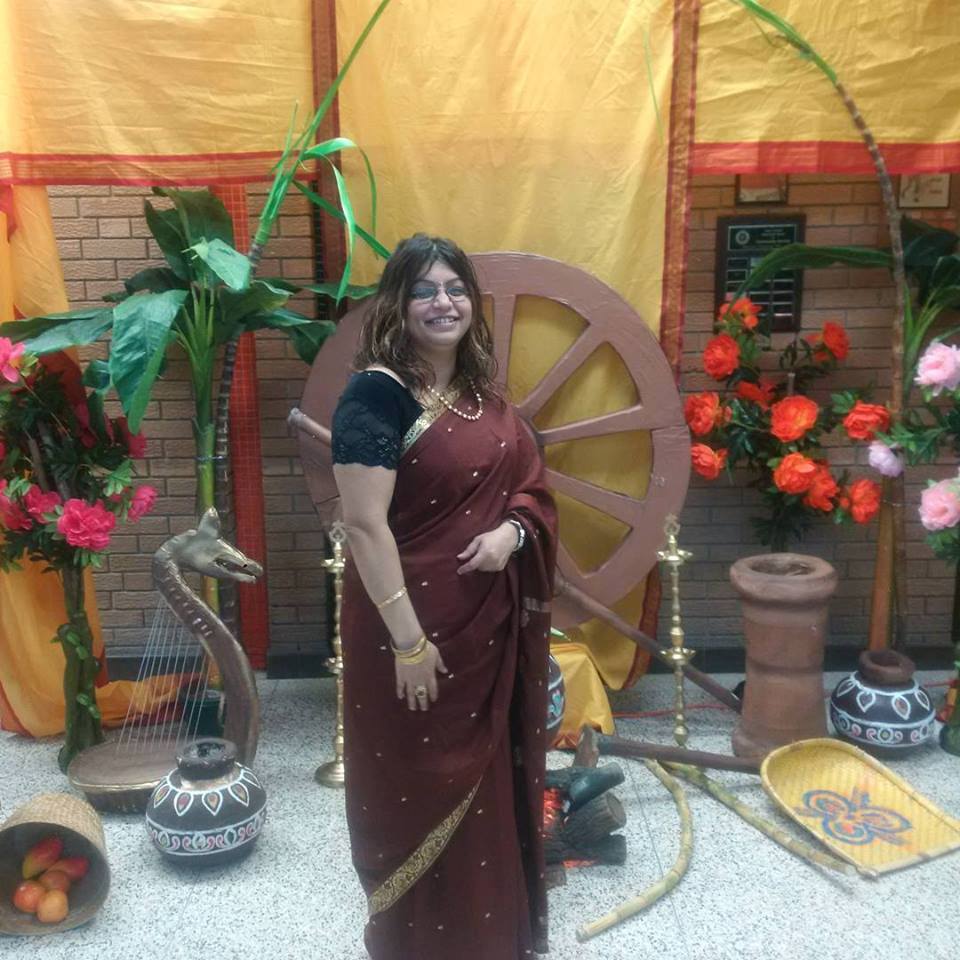A Sri Lankan Woman's Story of Strength And Giving Back

A Sri Lankan Woman’s Story of Strength and Giving Back
Written By: Gaya Nagendra
Living By The Tea Estate
My name is Gaithree Nagendra, but everybody calls me Gaya, Gaya Nagendra, and I am doing this project for Heritage Mississauga as storytelling of my journey from Sri Lanka to Mississauga, Ontario.
I’d like to thank the team at Heritage Mississauga for putting together this amazing project and letting me be part of this project and telling my story and how I came to Missisauga and how I love the city and community I live in.
My story begins in Sri Lanka, Jaffna, Sri Lanka on February of 1976.
This is where my parents, Reineka Kanagaratnam and Nagendra Nataraja, got their legal marriage done.
This marriage was set up through party system of arranged marriages, where my mom had one side and my father had his side and they came together as mutual friends and family and decided it was a best match that my parents would get married.
In that way, cultural and traditions, my parents met, I think maybe six or seven times.
And after that they had their legal marriage in February of 1976 and year after that, on February 10th 1977, they had their religious ceremony done in Jaffna, the hometown of my paternal grandfather and his family.
They got married that year of February 1977.
After that, my mom had moved with my father to the Tea estate of Sri Lanka, which is the Northern Hill part of the country, where he worked as an accountant clerk. She moved there after her marriage and after a couple of months, she had conceived me and on February 11th, 1978, I was born.
During that time, my mom had gone back to Jaffna, to live with my grandmother for the childbirth and my dad was still living in the Tea estate and he was working and he would come back and forth to see my mom.
He was there for the childbirth.
He was in Jaffna for a little bit, and then after that, he had taken me to live with him and my mom and the Tea estate plantation of the Hill Country of Sri Lanka in Naula and Unugalle Estate.
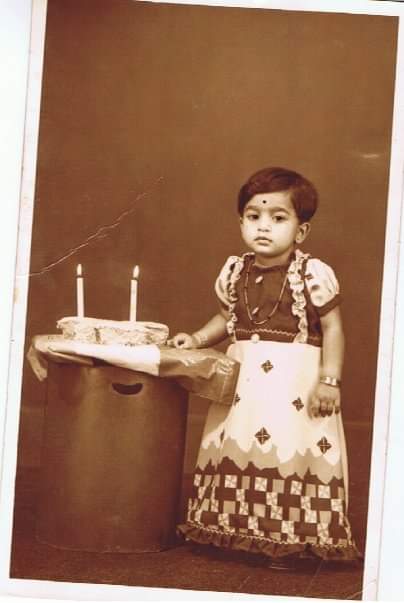
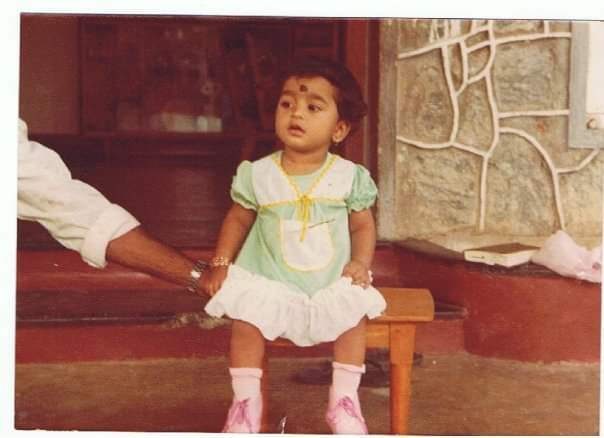
During that time, I had a very pleasant childhood of playing in the yard in a British cottage and living with the people of the laborers of the town, where my father used to work.
Everybody used to baby me and pamper me and carry me around and walk me around. It was a very, very pleasant childhood.
I had the best memories there because it was the place where my story begins of my journey to Canada. And after this time in the estate time, my father had a better opportunity in the city of Colombo. So, in 1982, we had moved to the city of Colombo, which is the capital of Sri Lanka.
1983
In January 1983 my father left to go to Saudi Arabia for better economic prospects from my family.
During that time, I was in Montessori school, my sister was younger than me.
She was two years old. She was staying at home and my mother was a homemaker. My maternal grandmother had also lived with us to help my mom around because my dad was not there.
So this time around, we were safe and had fun and doing everything normal people would do on a daily basis with their lives in Colombo, going to school, going to the market, buying fish, buying milk, playing, everything else, and being friendly with the neighbors and having a great time.
But our lives change on July of 1983, when my sister and I were playing in the veranda, playing on our bicycles and throwing balls and playing with each other.
And all of a sudden, we hear rocks coming through the window. We thought this was just a foul play, or somebody was just throwing by a mistake and nothing was really of that matter, and we just ignored and went on.
But unfortunately, that was not the case.
Then things started to get serious. People started throwing more rocks at the house. And then the bombs came in.
After that, we knew that something was not right. And they were trying to chase the Tamils out of the city of Colombo, because we were the minority of the country.
We were Tamils and the majority was Sinhalese. They were trying to oppress us.
My mother and my grandmother had panicked and we had nowhere to go because my house was getting bombed.
We just took whatever we had on our back, our clothing on her back, our possessions. We hid some possessions before because we know something was going to come and we didn’t know it was going to be expected that badly.
We just took what we had and we ran into the jungle, which was a back part of the house. And we stayed there for at least one a night until our neighbors found us.
After that night, my neighbors found us, took us in, gave us food, water, medication, whatever we needed and helped us.
We found one of our friends that helped us seek a boat to go to Jaffna.
Living In Jaffna
We went together as a family on that boat for maybe 10 to 15 days with only salt water, rice and bread.
There was not really a proper food there.
We had malnutrition, but we survived and made it to the province of Jaffna, which is the Northern part of the country of Sri Lanka, where majority of the Tamils lived.
This was a safe part of the country, where there were no riots.
In that time we got established and had found a place to live with my mom’s relatives and my grandmother.
I was admitted to school in grade one, which was Gurukul Girls College in Uduvil Jaffna, which is a close by city, near where my mom is from called Kondavil.
I went to school there in grade one for one year and a half because the process of Canada was coming and we knew that we were coming to Canada.
So in that time, my father did not know where we were.
He thought that we were dead. He had no idea. He did not know where we were for 40 days.
Luckily someone had given him a message that his family was good and that nothing had happened to us.
He resigned his post in Saudi Arabia and came back to Sri Lanka to make sure we were safe.
His brothers knew that he was still in Sri Lanka and my extended family was in Canada.
My dad’s younger brother started the paperwork to get a sponsor to Canada. So after this, we only lived in Jaffna for a little while then we moved back to Colombo.
Coming To Canada
And after that, we were just waiting for our papers to come through.
Finally, our papers came through in of March to April of 1985. And in April of 1985, we boarded a flight headed for Toronto, Ontario from Colombo, Sri Lanka.
From Colombo to Japan, to Vancouver and to Toronto Pearson International Airport, we finally landed in Toronto on April of 1985.
This was the first time that I had seen nightlights and big buildings.
It was such a different world of what I’d seen in Sri Lanka.
First Stop – Mississauga
It was an exciting ride from the airport to my aunt’s home in Mississauga. During this time, my family reunited with us. We had not seen my cousins that were born in Canada, or my cousins that used to live with us in Sri Lanka, because they left before we did.
We all got reunited.
We lived in Mississauga for at least six or seven months just to get ourselves established. I had to go to school, my sister had to go to school. ESL was not a problem because I knew English when I came to Canada. So I did not really have to stay in ESL. I think I stayed in ESL for one month and after that we lived in Mississauga, got everything done here and got ourselves established.
Small Town Living
My dad decided to take a job in Windsor, Ontario in the county of Essex, in a town called Amherstburg because he thought it was a better pay.
My other uncle lived in the same vicinity in that town, so he said for us to join them.
We moved to Amherstburg Ontario from 1985 to 1992.
During that time, it was my younger years of my former of education, starting again in grade one, I had to be put back because of my education experience in Sri Lanka was not enough.
It was okay though, because like to learn to make myself better. It didn’t put me down.
In this time that we were Windsor, it was not really multicultural.
We were the only foreign family living in that town. The town’s population was about 25,000 to 30,000.
There was a little bit of racism here and there. But as soon as we started to speak English and become more adaptive to the society of the town, we felt we were accepted. And after that we did not face any racism. And my childhood was good and we had our culture.
I forgot to mention, I had a younger sister who was born in 1980 in the estate town of Mathura. She was born there and she is younger to me by two years. So I did have her in my life as well throughout my journey.
Amherstburg, Ontario was a different experience because we did not have any people of my culture living there. We were kind of alienated. But again, we had to go through a lot to get to where we were. And by speaking English and adapting to the way of the towns, we kind of got used to it and we didn’t feel any more racism. And we had a small community knit feeling. So we made more friends at the time and people were friendly to us.
Windsor
Luckily, in the near city by Windsor, Ontario, we had a community of Sri Lanka and Indian people that spoke our language that went to University of Windsor. The students and some older families.
We met those people and we became friends with them. And in that way, we were connected to our culture because we ate the food, we spoke the language, we watched the movies. And that way we were connected, even though we were living in an alienated area of the province, city, where everything was foreign.
Cultural Dance – Bharatanatyam
In this city of Windsor, Ontario, we were able to learn our cultural dance, which is Bharatanatyam, which is a form of traditional dance formed in dance and temples in south India.
So me and my sister had learned this from the age of nine till we were up to the age of 19 to 21. So we were pretty good in the art of this dance form. We had many recitals in Windsor and Toronto and Mississauga. We were able to perform our culture and keep it alive and have a spirituality bonding with our culture, religion, and tradition, and have a special relationship with our dance teacher, which we call a guru, which becomes more than your teacher, but she becomes a second mother to you or a father, depending on the female or male group. And it becomes a bond and a friendship.
Illness in the Family
In the summer of 1992, my father got ill. He had his first heart attack. He got sick and he was stressed out. He was mowing his lawn and he had chest pains and everything else.
My sister and I were in Toronto visiting my family because sometimes my dad used to drive us to Toronto and drop us off there in the summertime two to three months to spend time with extended family. And this time around, we were in Toronto when my father got sick. So, of course, our summer vacation had to be cut because my father had gotten sick. So my uncle rushed us back to Windsor so we can be with my father. And during this time we were visiting my father in a hospital, coming home, back and forth and all that.
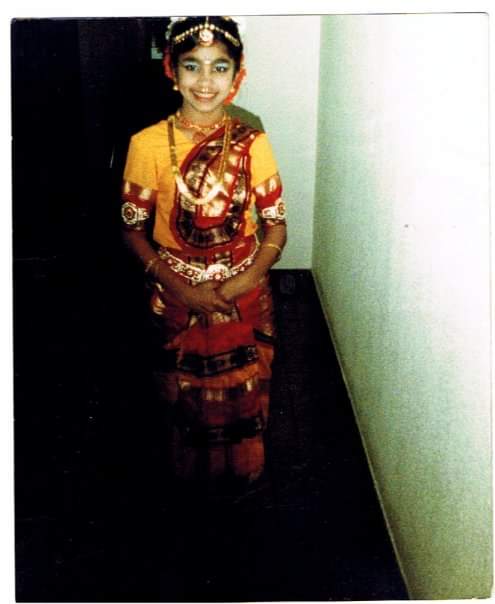
The Move Back To Mississauga
And my family had a meeting. We decided it would be best that my family move back to Mississauga because my father needs to be more closer with the family, and get more help, and the doctors and access to Medicare was better there. Plus we could have a sense of Sri Lankan Tamil community here. And me and my sister could grow up in a better environment with our people.
1992 – Back To The Beginning
So that fall of the year 1992, we sold our house, packed up our belongings again and we moved to the city of Mississauga. Where if you realize in the beginning of my story, I said that I landed on Pearson Airport and moved to Mississauga in 1985. Now I’m coming back after seven years of this living here for six months. So in reality, 1992 is the start of my journey in Mississauga, Ontario, Canada.
In Mississauga we lived in a rented condominium at Dixie and Bloor where predominantly the community was South Asian with many Sri Lankan people living in our neighborhood. We felt at home because we know how to speak the language, we could eat the food. And it was a sense of community.
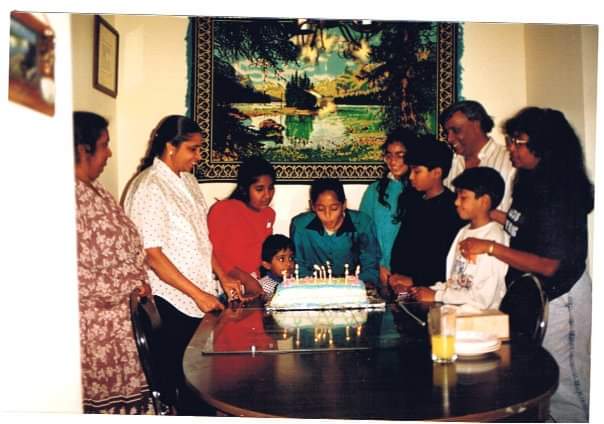
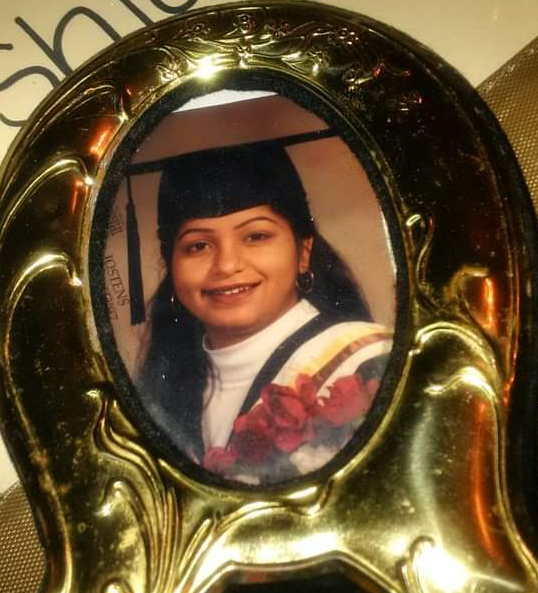
High School
This was my first experience as a grade nine student in high school. I felt that high school was kind of like where people didn’t know that I was Sri Lankan. Because of the way I looked, I was kind of ostracized. They thought I was from India or Pakistan and they didn’t want to accept me as being Tamil. So I had to prove myself. Don’t treat me like this. I am Sri Lankan. I am Tamil and I speak your language. So in way it was kind of hard.
I first started to mix with other nationalities because the Tamil people did not want to hang around with us because I didn’t look Sri Lankan myself because I’m a bit more fair skin than other people. There is a little bit of the color discrimination between fair skin and dark skin between Tamils and other ethnicities in the South Asian subcontinent.
After a couple of years in high school, the Tamil people started to accept me and they said, “Okay, we like you now. You’re our friend.” After this, I became more aware of my culture and my surroundings and started to become more active in the community as a volunteer with the Tamil community in Mississauga.
Volunteering & Community Work
Starting from age of, I would say 14 and up, when I was in high school, my father used to take us to election campaigns to volunteer for MPs and MPPs and cultural events and everything else. So that year was the start of our volunteering, plus working with the greatest Sri Lankan community in Peel region and Toronto.
So during this time, we grew up with the community, both multicultural and Sri Lankan. And we got to know our social circles between high school and the Tamil community. After graduating from high school, I took it upon myself to go study in post-secondary school for accounting and commerce because my father was an accountant and I thought I would follow in his footsteps.
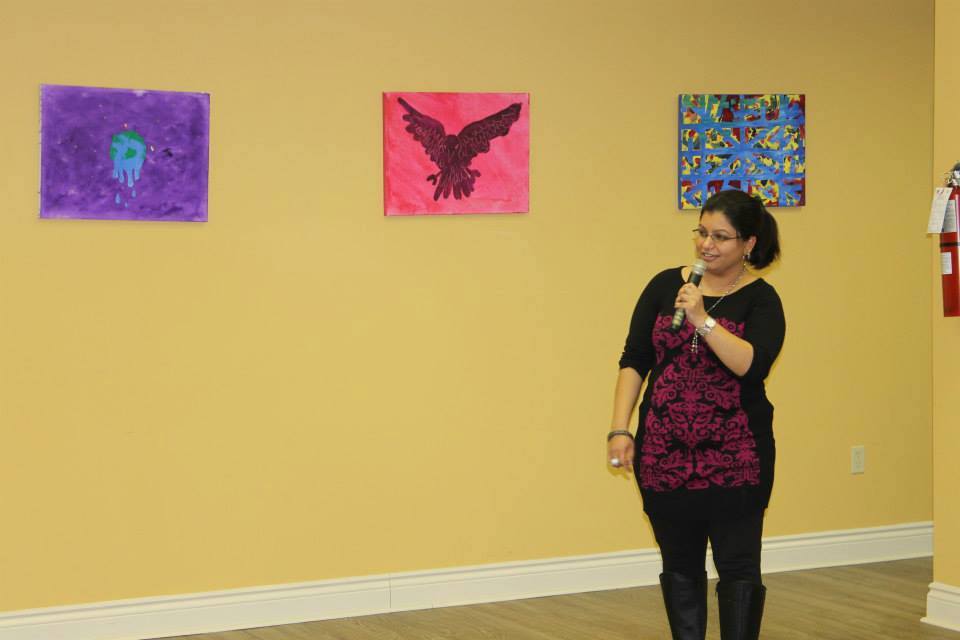
Post Secondary
So I started my journey in education in accounting and commerce. But that didn’t work out for me too much because I did not like what I did. So in between my schooling, I had a chance to switch my field to study social sciences because I felt that I was more of an arts person than an economics or business major. So I switched my degree to study social science and social work. And that point on, I just geared my education and my experience in social work that way with volunteering and studying the education.
After I had finished university, I couldn’t get a job in social sciences right away. So I worked as a purchasing analyst for a telecommunications company and it was in the corporate world. I did not like it and I wasn’t happy.
Volunteering in Sri Lanka
So that year I had an opportunity to work in Sri Lanka as a volunteer with a group of students that I went to university with at University of Toronto. I was 24 years old. And I would say that it was a first time that we went back after so many years through Sri Lanka. We went there, we did a lot of volunteer work with the homeless people, people who had been affected by the war – children, women, families, orphanages, and school children. This opportunity gave me an insight to what I really wanted to do in my life, because my life changed a lot after this experience.
Community and Social Work
After coming back to Canada, the same year of 2002, I did my further education in community and social work and received a social service worker diploma with my degree from the previous years. And I combined everything together and got myself a couple more diplomas to study and I started to work in the field.
Becoming A Wife & Mother
In 2005, things changed in the dynamic of my family, where there were two girls (my sister and I) and there was pressure to get married because we were of the age and we were working.
My parents had this pressure brought upon them by their society and their family. “Oh, if you have two girls, you have to get them married off because that’s how things are in my culture.” So 2005 brought on the responsibility of being a wife. And three years later brought on the responsibility of being a mother. And after this experience I had to live my life through my new family and my old family.
So there was a lot of togetherness in my family at this time, because a lot of my older cousins and myself and my cousins my age got married and we had significant others, and our children also came into this picture now.
We had a mix of three generations together in my whole extended family, which is my father’s side. We had my uncles, my aunts, my cousins, our spouses, and our children, including siblings of my cousins who also got married, who had children. So all in all, we had a big extended family.

A Family Grows
From I guess, 2005, about till 2019, just before the pandemic hit a lot of whatever I was doing in my life, whether it was work, family, home life it had to do with a lot of the extended family that came to be with us during the times. So that’s how our family network grew because of the large expansion of kids being born, significant others coming into our lives and everything like that.
A Big Loss
In 2017, my father passed away due to a heart attack. He was previously ill before that time as well. But in 2017 that’s another incident happened in my life that impacted me a lot because my father was the reason I am here today and the person I am. Which is, a social worker, an activist, a mother, and a family person that helps the community.
My father taught me these things from a very young age, from age 14, to all the way up to 43 now.
Everything I have learned was from my father, he was the pillar of my life and what had gone through from Sri Lanka to Canada, he had taken upon himself to bring me and my sister up, give us a good life, academically, culturally, community wise. Even though he was a strict father, he was a very, very strict father because he wanted us to be brought up in a good way.
The Wisdom Of A Father
We had our freedoms too, we weren’t like other Sri Lankan families where most of the girls were kept home and restricted and they were in their shell. My father was not like that, he pushed us to do things all the time.
He told us not to be afraid, you can do whatever you want in this world. So I have to take a lot of credit to my father for bringing me up this way. And I just like to say that coming from Sri Lanka, going through this journey of coming through war and living my life in Sri Lanka and Canada, has taught me to be a better person, to help people in need and to be a good person on this planet.
.
Love For Mississauga
I love the city of Mississauga. I love the community that I’m involved in. I would never give anything back to hold back anything. I would like to see myself grow more in the city. My daughter has a future here, and I’d like to thank everybody in my life so far that has been there for me. For the past, I would say 43 years, whoever I met through my life, my family, my friends, acquaintances. And I’m still going on through my journey coming from Colombo to Mississauga.
And it’s been a very, very positive, some negative experiences as well, as we all go through them. But other than that, I think I had a very fruitful journey going through one thing to another and going to live from one continent to another continent. Having culture shock and going through a lot of things to get through to where we are today.
So I’d like to thank the city of Mississauga, Mississauga Heritage, Mississauga and team for letting me do this project, narrating my story in my own voice as a narrative of my storytelling and to make my story in Mississauga, a positive one. And then I’d like to say thank you for everyone for letting me do this and it was a wonderful experience.
